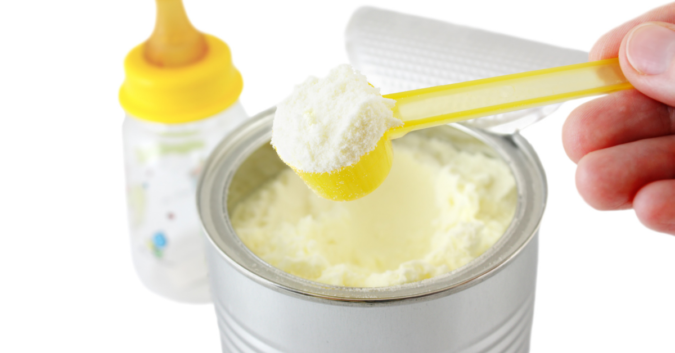On February 17, 2022, the United States Food and Drug Administration (FDA) issued a public warning, advising parents and caregivers to stop purchasing and feeding infants certain powdered baby formulas produced by Abbott Nutrition due to a risk of bacterial infection.
In partnership with the U.S. Centers for Disease Control and Prevention (CDC), the FDA has launched an investigation into the Abbott Nutrition facility where the baby formula was manufactured.
According to the FDA, bacterial contamination of certain Abbott Nutrition powdered formulas manufactured in a Sturgis, Michigan facility could lead to Cronobacter sakazakii or salmonella infections in infants who consume the impacted products.
Included in the FDA’s warning are the following Abbott products:
- Similac®
- Alimentum®
- EleCare®
The FDA’s warning follows four consumer reports of adverse health events — including three cases of Cronobacter sakazakii and one case of salmonella. In these four incidents, all infants were hospitalized and one death may have occurred as a result of a Cronobacter infection.
In response to the FDA’s public safety announcement, Abbott has issued a voluntary recall of impacted product lots of Similac, Alimentum, and EleCare.
Which Product Lots Have Been Recalled?
Only certain product lots of Similac, Alimentum, and EleCare are included in Abbott’s voluntary recall. Specifically, the FDA advises parents and consumers not use Abbott-produced powdered infant formulas if all of the following criteria are met:
- The first two digits of the product’s code are 22 through 37
- The code on the container contains K8, SH, or Z2
- The expiration date is 4-1-2022 (APR 2022) or later
Product lot information and expiration dates can be found on the underside of the powdered formula container. The impacted product lots have been distributed across the U.S. and exported to countries around the globe. Cronobacter and salmonella infections have been reported in three states, including Minnesota, Texas, and Ohio.
The FDA emphasizes that Abbott powdered formula products that do not meet all of the criteria noted in the above list remain safe for consumption, although Similac lawsuits have been filed for other issues regarding the formula's safety for premature infants.
Risk of Cronobacter Sakazakii and Salmonella
The FDA’s investigations of the Sturgis, Michigan facility where the impacted baby formula was produced as well as the four reported incidents are ongoing. To date, the FDA’s onsite inspection of the Sturgis, MI Abbott facility has produced several positive Cronobacter sakazakii results. Abbott’s internal records also show the company had previously destroyed certain product batches due to the presence of Cronobacter sakazakii.
The CDC characterizes both Cronobacter and salmonella as presenting serious or fatal health risks to infants.
Cronobacter Symptoms
Cronobacter is rare but very deadly in infants. Infections by Cronobacter can lead to sepsis or meningitis, which can be fatal among infants.
Common symptoms of Cronobacter include:
- Crying
- Fever
- Jaundice
- Poor feeding
- Very low energy
Additionally, the CDC warns: Babies with meningitis may develop serious and sometimes lifelong problems in their brains. Roughly 4 of every 10 babies with meningitis from Cronobacter die.
Salmonella Symptoms
Salmonella infections in babies can lead to gastroenteritis — a condition marked by inflammation in the digestive system.
Symptoms of salmonella may include:
- Abdominal cramps or tenderness
- Diarrhea
- Fever
Severe salmonella infections can lead to salmonellosis, which can be accompanied by a very high fever, rashes, and blood in the infant’s urine or stool. In severe cases, salmonellosis can be fatal.
What to Do If Your Child Has Been Infected
In a statement, FDA Deputy Commissioner for Food Policy and Response Frank Yiannas noted:
“As [these products] are used as the sole source of nutrition for many of our nation’s newborns and infants, the FDA is deeply concerned about these reports of bacterial infections. We want to reassure the public that we’re working diligently with our partners to investigate complaints related to these products, which we recognize include infant formula produced at this facility, while we work to resolve this safety concern as quickly as possible.”
Any parent or caregiver whose infant was infected by Similac, Alimentum, or EleCare should seek immediate medical attention and report the incident with the FDA’s MedWatch Program.
If your child developed a Cronobacter- or salmonella-related infection, you may also have legal options. To learn if we may be able to help in your situation, contact us today for a free, no-obligation legal consultation.
